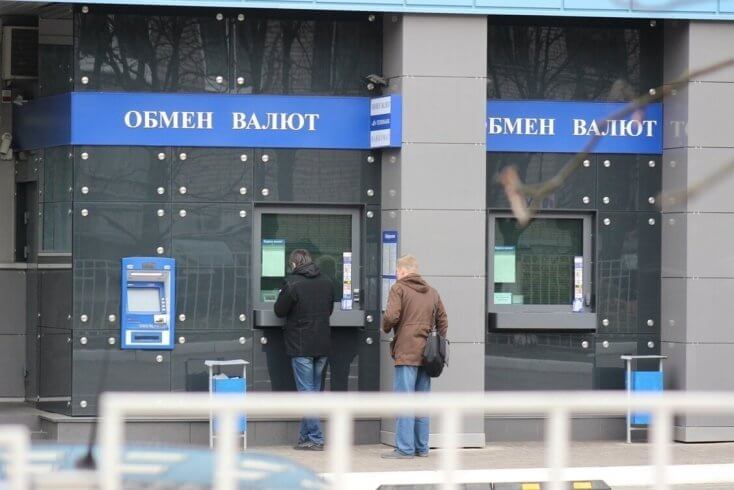Aleś Hudzija
Belarus had enough skilled workers before 2020 but has experienced a major labor force outflow amid the political crackdown.

Minus 44,000 employees in 2023
In Belarus, with a population of 9.2 million, only 4.1 million people, or about 45 percent of the population, are employed in the economy. The number has been declining rapidly in recent years, falling by more than 44,000 last year alone.
Number of employed people
Number, ‘000; Change, ‘000
The country faces serious demographic problems, including labor shortages.
The government first took a targeted approach, prohibiting layoffs to retain workers at key companies. It has also moved to extend the period university graduates are required to work at assigned jobs in healthcare and other sectors.
More recently, it tried to address the problem more comprehensively, adopting state HR management and migration policy concepts. Both, however, do not delve into the root causes of the crisis.
Officials avoid talking about causes
The two papers outline a general view of the government on labor market issues and introduce a concept of labor security. Minsk recognizes that a healthy labor market is extremely important for socio-economic development.
In 2019, employment increased by 200 people, whereas in 2020 it declined by 25,000; in 2021, by 47,000; in 2022, by 79,000; and 44,000 in 2023. The outlook for 2024 is negative, based on the two official documents.
As the budget is tight, officials plan to encourage compatriots to return, attract skilled foreign workers and encourage those working abroad to send money home.
Difference between incoming and outgoing cash transfers, $m
The papers urge officials – from the head of state and the All-Belarusian People’s Assembly to the Academy of Management and local governments – to deal with skilled labor migration, lack of incentives and the declining attractiveness of the civil service by monitoring labor force movements, retaining staff, tightening work discipline and raising managers’ personal responsibility.
According to the two papers, “the spiritual, moral and patriotic education of young people in line with the ideology of the Belarusian state” is also supposed to help.
Not only IT professionals leaving
Staff shortages in healthcare and emigration of IT professionals have made headlines. In 2023 alone, the health care system has lost about a thousand workers and the IT sector, about 7,000.
Real numbers may be even higher, because data on IT has disappeared from open access, so the situation in the industry can only be assessed in the broader category of “information and communication industry.”
Apart from healthcare and IT, almost every major sector has seen a decline in employment. Even industry, a growth driver in 2023, was affected, just as trade, transportation, construction and education.
Ratio of hired to dismissed workers for 2023 by month
Water supply, total, public administration, healthcare, IT and communications, R&D, education, industry, agriculture, construction, arts, sports&recreation, trade, transportation, finance, power supply
Personnel shortages are reported across the country with the capital hit the hardest by the exodus of specialists from IT, traditionally concentrated in Minsk.
Hired-to-dismissed ratio for 2023 by region
Belarus, Brest region, Viciebsk region, Homiel region, Hrodna region, Minsk region, Mahiloŭ region, Minsk
The problem has been recognized by all parties – government and non-government experts, officials and businesses. However, measures proposed by officials raise eyebrows. Tighter controls, forced retention and all sorts of propaganda only prompt workers to emigrate.
“Patriotic education,” the term used by the government to describe indoctrination, may work to increase numbers of officials and law enforcers.
If the government insists that every citizen’s primary obligation is to work for the state, but at the same time neglects its responsibility to create a favorable economic environment, Belarus may soon become North Korea or Turkmenistan. If it decides to preserve limited freedom for business, the country would resemble Iran.
Either option can only ease the employment issues, but not solve them. An effective solution requires reforms and dialogue with society and business.



